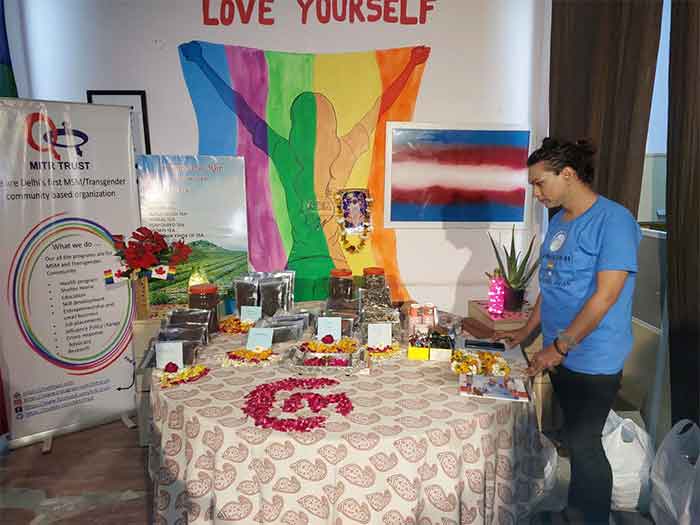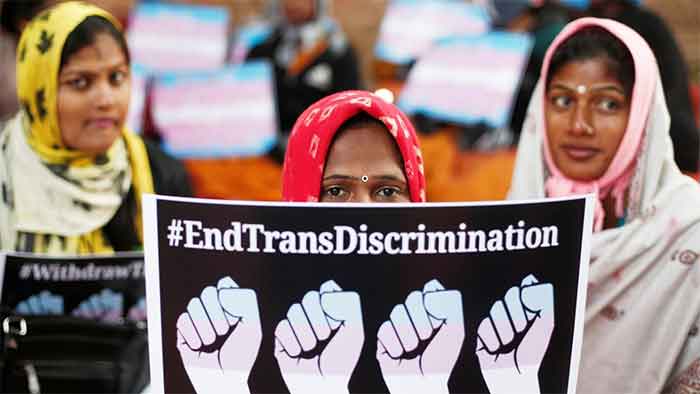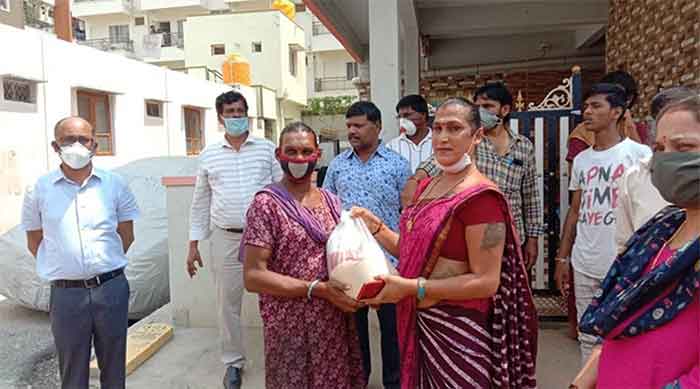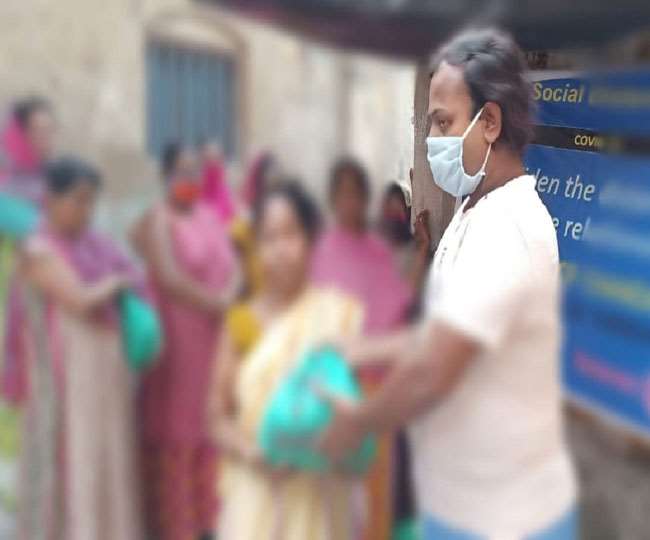Transgender rights are a heated topic across forums in the country and make for long panel discussions and boardroom conversations. Rules under the Transgender Persons (Protection of Rights) Act, 2019 seek to recognise the identity of transgenders and prohibit discrimination in the fields of education, employment, healthcare, holding or disposing of property, holding public or private office and access to and use of public services and benefits. The reality is that the integration of transgenders in the mainstream, without any discrimination, still remains only on paper. However, efforts by civil society organisations are creating dignified and sustainable employment alternatives for the benefits of transgender people.

Take the example of Delhi-based transgender duo Anmol and Sanam who suffered massive discrimination and indignities at their workplaces and so decided to opt for entrepreneurship. They started a fast food joint called Punchaiti Food Corner at a business complex in South West Delhi. Sanam, a transwoman, is a graduate in Commerce. She has been struggling for years where she gave tuitions and worked for various companies, but she finally realised that to live with dignity, she will have to set up her own venture. Transman Anmol lost his job as a computer instructor with a private company due to discrimination. The duo met each other at Mitr Trust, an NGO working for the trans community. Founded in 2005, Mitr Trust, in collaboration with EY Foundation and Connecting Dreams Foundation, started a project named Saksham to help young trans persons complete their education through distance learning and hone their skills in different fields to start their own venture. They also provide seed capital for them to begin their business.
Anmol and Sanam began with the bare minimum requirements needed for a fast food joint and started with a basic menu that offered momos, noodles, butter toasts and omelettes. Connecting Dreams Foundation helped them buy a movable stall and products like ice box, better frying pans and other gadgets to expand their business. They now look at getting a licence and a more suitable corner in the business complex. “We are facing technical problems in getting licence. Once this is sorted out, we will add a few more items to our menu to enable us to earn more money,” says Anmol. As of now, they earn a maximum of Rs 1,000 a day. “It’s not only in offices that we have to face discrimination. Even here, we come across untoward behaviour at times but we ignore it and refuse to be provoked for the simple reason that we are determined to continue with our venture and have more and more customers,” shares Sanam.
Sanam’s mother has allowed the two to stay in her house but refuses to accept their gender status and remains indifferent to them. Anmol’s parents, who live in Uttar Pradesh, are also in denial of his transgender status.

Priyanka, a transwoman from Assam has also chosen the entrepreneurial route. She blends tea leaves with different flavours. ‘Connecting Mitre’ is the brand name she has given to her tea leaves. “My brand is natural and organic. No chemicals have been used and the flavour used is labelled on the packaging,” she says. Priyanka got interested in blending tea leaves when once she accidently put some sweet meat in a cup of tea she was preparing for her father. Her father really liked the taste and this gave her an idea to work on blending tea with various flavours. She spent nine years in tea gardens close to her home in Jorhat to learn the process of growing and preparing tea leaves.
Being a transgender person, Priyanka shares the sentiments of Anmol and Sanam and says, “It is not possible for me to start any venture in my home town where even my own parents are in denial of my sexuality.”
Priyanka came to Delhi’s Garima Greh after she came to know that a scheme had been initiated by the Ministry for Social Justice and Empowerment to help transgender persons. Priyanka started with taking an English speaking course. The Connecting Dream Foundation provided the necessary guidance and mentorship in packaging of her brand of tea leaves and marketing besides providing her with the basic finance to start her business. Gutsy Priyanka has decided to market her brand of tea leaves by selling it to retailers across various markets before she gets a space of her own. “It is going to be challenging as the people have yet to change their mind set with regard to the trans community. I am, however, hopeful, because my tea blends were liked by customers at a few events where I introduced my brand.” The price of her flavoured organic tea ranges from Rs 70 to 110 for a box of 250 grams of tea.
Transwoman Bela was the first to seek shelter at the Garima Greh that was started in 2019 and is now the programme manager of the scheme. She also provides financial assistance to her parents. However, she cannot live with them because she does not want her younger sisters to suffer in any way because of her trans status. Bela, who eventually wants to open her own production house, has been able to earn extra bucks through her modelling assignments.
Mitr Trust is currently helping 25 transgender people to benefit from the Garima Greh scheme. “Our objective is to see that the transgender persons live a life of dignity and are not forced to beg on the streets,” says Rudrani Chhetri, the founder of Mitr Trust.
The government only provides for stay and food and that too only for a year, which, according to Rudrani, is too short a period. “It takes months for transgenders who seeks shelter in Garima Greh to come out of the trauma and harassment they have been facing for years at their homes and elsewhere. Most of them are school or college dropouts and so they need to first complete their education and then we train them in skill-based work,” Rudrani adds. They often manage funds through loans and donor agencies.
Besides, promoting entrepreneurship, the Mitr Trust has also been able get placements for 58 transgender persons with different entities including corporates and MNCs in Delhi and elsewhere. One of them is Rifaya, also from Assam. While she is trained in nail art and has been freelancing, it wasn’t enough to sustain her. She recently got a job with Amazon in their customer care wing. Rifaya wants to have a salon of her own one day. She has applied for loans from a few NGOs. In the meanwhile, she is exploring the markets for the latest products and tools for nail art even as she continues with her job.
Indrakashi, 23, a transwoman, also got a job with Amazon recently. Born as a male, Indrakshi had feminine interests right from her childhood but it was much later that she realised that she was a transwoman and did not want to continue to dress and live like a man. Skilled in dance, Indrakshi left her home in West Bengal after Class X to live with her sister in Gurugram. She worked in theatre, anchoring and did odd jobs in private companies to avoid being financially dependent on her family. She wanted to be an RJ and work in the film making field but lost her savings chasing this dream. “I realised that my interests and hobbies may not get me the desired status in society and therefore I want to complete my graduation in Commerce and pursue a post-graduation and get a good post. It was through the internet and social media that I came to know that I was not the only one who felt like a woman and wanted to dress and act like one. But I was still confused about my status,” she shares. She came to Mitr Trust in 2018 and went through a lot of counselling. Indrakshi is now undergoing hormone therapy for transition.
Then there is Urvashi who too landed with a job at a call centre but she gave it up because she wanted to prepare for her undergrad exams. Urvashi has the support of her mother but her father and other family members are in denial of her identity and address her with the name given to her as a male child. “For now, my mother is paying for my hormone therapy. I have completed one year and can now go for the transition surgery but I need money for that,” she explains. While there is an Ayushman Scheme that offers medical facilities for hormone therapy and surgery, the scheme is only on paper in Delhi, lament many transgender people.
The National Institute for Social Defence, that holds workshops on the rights of transgenders and sensitising the society, has a number of transgender persons on its pay rolls. Pride Circle also organises job fairs annually for the LGBT+ community with a number of corporates taking part in the fair. In the last four years, they have been able to get the corporate sector and other entities to employ 600 persons from the LGBT community.
While many systems and efforts are in place, the need for spreading awareness about the law and its implementation still remains. It is important for the society to treat the transgender community as an equal to ensure dignity for them in the real sense of the word.
The article was first published in the Civil Society Magazine.
Sarita Brara is a senior independent development journalist. Share your feedback on [email protected]
Charkha Features















































